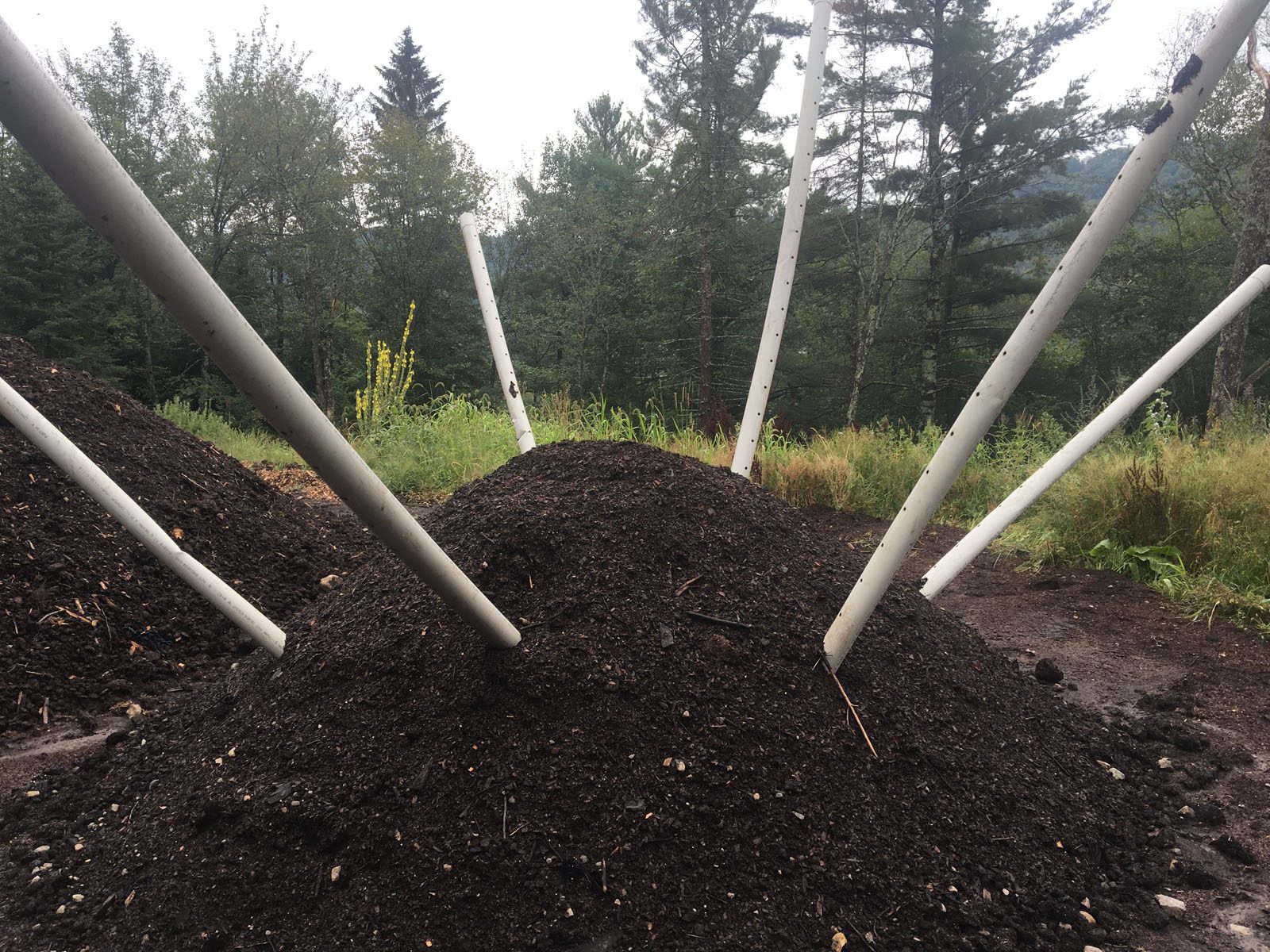Each year, we make the compost that we need to fertilise our organically-grown herbs. Compost is a balanced mix of nitrogen-rich material and carbon-rich material, as well as an essential but invisible ingredient, living bacteria.
In a home compost, table scraps supply the nitrogen-rich material, called green material, whereas garden residue (leaves, plants, stems, hay, wood chips…) constitute the carbon-rich or brown material. Table scraps from our lunches are in short supply so we collaborate with our friends and neighbouring farms who produce horse, bison, chicken or sheep manure in order to obtain sufficient nitrogen-rich material. We add our residue from the production of extracts and all the carbon material obtained from the garden by weeding, spent annuals and harvest residue.

After many complicated calculations that insure the correct carbon:nitrogen ratio, our compost expert builds up the compost mounds by mixing different materials in the right quantities. This year, we built nine mounds that basked in the sun a few hundred meters from the garden.
The mounds are covered with a black geotextile that lets the air through and allows water to evaporate but that stops rainwater from entering because a wet compost does not decompose. The textile also protects the mounds from stray seeds carried by the wind that would germinate in the compost. One mound is always left open so that garden residue can be added to it as it is produced.
Compost needs air because decomposing organic matter is done by aerobic bacteria. Without air, anaerobic bacteria take over, which hinders decomposition and gives off strong unpleasant smells. To make sure our compost gets enough air, we insert PVC tubes in the mounds. Very efficient… but weird looking.
The decomposition of organic material gives off enough heat to kill harmful bacteria and keep the mound from freezing because a frozen mound does not decompose. It must stay warm. The mounds are turned over about 4 times during the season to insure even composting. This way, the compost will be ready in spring to start a new production season.

